#FlashbackFriday – One Of The Ways We Help Communities Is By Enabling Them To Be Prepared In The Event of Disasters Or Emergency Situations
#FlashbackFriday – One of the ways we help communities is by enabling them to be prepared in the event of disasters or emergency situations, all the while being financially resilient. For instance, more than a year ago we coordinated with a of group of empowered women in making an impact in their livelihoods and their whole community.
*Photos were taken before the pandemic*
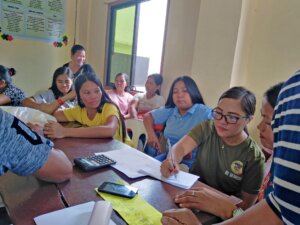
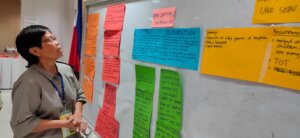
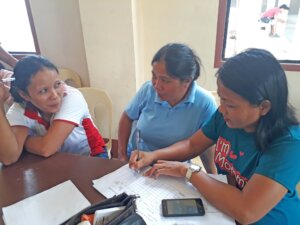
Barangay Caimpugan in San Francisco, Agusan del Sur sits along the Gibong River—a source of irrigation for some 6,000 hectares of rice fields in three municipalities of the province. Because of its close proximity to the river, its residens often experience floods during the rainy season, especially with heavy rains induced by tropical storms causing the river to overflow. Aside from this, clean and safe drinking water is hard to come by since the baranagay is not coverd by public water utility services.
For the Caimpugan Women for Strength (CAWOFS) Cluster Level Association, a federation of 6 self-help groups (SHGs) composed of women, this reality does not deter them from aspiring for a better future.
What they needed was a sustainable source of livelihood to be able to contribute to their families’ income while striving to learn more about the ways they can reduce the impacts of flooding to their community.
An opportunity came with the contingency planning and resilient livelihood workshop through the I-RESPOND 2, a project funded by Kindernothilfe (KNH) and implemented by Action Against Hunger aimed at improving the capacities of partner barangays on disaster preparedness and resiliency. CAWOFS actively shared their ideas and together with their barangay local government unit (BLGU) leaders learned how they can best prepare for and mitigate the impacts of disasters. The Barangay Disaster Risk Reduction and Management Council (BDRMC) was strengthened with the inclusion of the officers and members of the CLA into the different committees. Together with the BLGU, they were able to develop a contingency plan on flood.
The Resilient Livelihood discussion also helped them craft a plan to provide earning opportunities for their members while helping to solve one of the community’s problems – clean water supply. They developed a business plan around distribution of safe drinking water to the households. In January 28, 2020, the group received the seed capital worth 50,000 pesos from the I-Respond 2 through Foundation for the Development of Agusanons, Inc. (FDAI), a local KNH partner.
“This business will help us a lot. Everyday people need clean drinking water. And every day is a challenge for most households. We know that the rainwater is not as clean anymore but we have no choice but to use it”, said Lilibeth Lalangan, the CAWOFS President. Now, with the operation of the water refilling business, members of the Volunteer SHG will have another source of income while providing access and clean drinking water to the community.
𝗥𝗲𝗮𝗱 𝘁𝗵𝗲 𝗳𝘂𝗹𝗹 𝘀𝘁𝗼𝗿𝘆: https://bit.ly/3gmv1eS


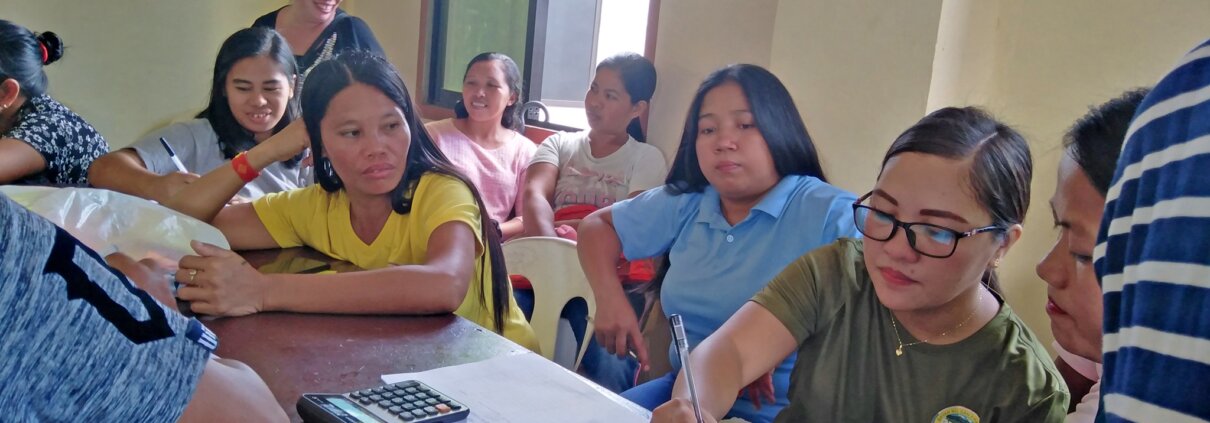
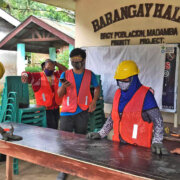
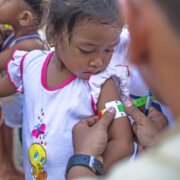
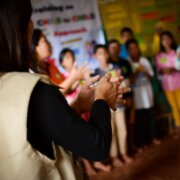
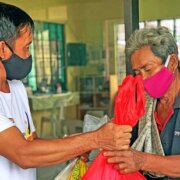
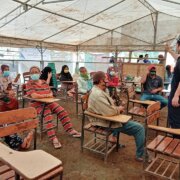
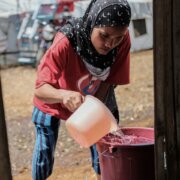
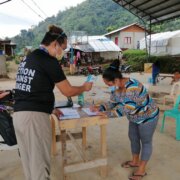



Leave a Reply
Want to join the discussion?Feel free to contribute!